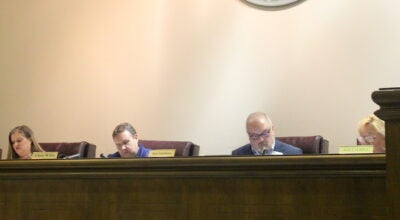Elevated roadway plan mindful of businesses, residents, ALDOT spokesman says
Published 5:48 pm Friday, February 19, 2010
The spokesman for the Alabama Department of Transportation said that department has been mindful of residents and businesses along the U.S. 280 corridor in its development of the proposed elevated toll road.
A group of about 15 North Shelby residents is trying to drum up Shelby County opposition to the elevated toll road, which is proposed as a way of easing the choking congestion suffered by travelers on that roadway now.
That small group of residents and business owners, who are calling themselves Rethink 280, said the elevated toll road would harm businesses and cause the decrease of residential property values.
“We’ve been mindful, and have worked with local governments, residents and businesses through Progress 280 and individually, in developing the concept,” said Tony Harris, ALDOT spokesman.
“This whole effort to relieve congestion on 280 has been studied by ALDOT for more than 25 years to improve conditions and address the congestion and urban sprawl that’s occurred along this corridor. Our efforts have been at the behest of the local communities along 280 in Jefferson and Shelby counties. At a time when competition is rampant for highway dollars across Alabama, it’s a shame to see every proposal shot down for decades when it may ultimately mean millions in highway dollars will instead be spent in other communities,” he said.
Jennifer Trammell, president and CEO of the Greater Shelby County Chamber of Commerce, said businesses would be enhanced, not harmed, by the construction of the proposed elevated toll road.
“I don’t think this is going to hurt business at all. Truthfully, if you add the 40,000 more cars that are predicted to be traveling on 280 within the next 30 years, it will be enhanced. Right now, people avoid businesses on 280 because if you get off to go anywhere, you can’t get back on,” Trammell said.
She said no one fix to the U.S. 280 traffic woes will satisfy everyone.
“There is no perfect solution. We’ve exhausted so many ideas and opportunities. This is a plan that can definitely take us into the future. The toll road plan carries us for 30 years. We’re at a grade F on 280 now. In 30 years, when this toll road will be at its capacity, it would be at a grade A,” Trammell said.
She also praised ALDOT for the improvements it plans for the surface-level lanes along U.S. 280.
Harris pointed out access to businesses and residents won’t change because of the elevated toll road.
“The toll lanes would be an option for through-traffic and the non-tolled lanes would still be accessible at various locations. By providing tolled expressway lanes, there would be for the first time a way to separate through-traffic from local traffic. This concept wouldn’t change business or residential access, and would allow for traffic with a destination outside the municipalities along 280 to move unimpeded by local destination traffic,” he said.
Hoover Mayor Tony Petelos said he is looking forward to seeing ALDOT’s presentation to that community’s city council about its plans for the elevated toll road.
A spokesman for the Rethink 280 group claimed Petelos is against the elevated roadway project, but Petelos said that’s not the case.
“I’m undecided,” he said. “I think there are many unanswered questions about how it will effect neighborhoods and businesses along the 280 corridor.”
He said the date for the ALDOT presentation before the Hoover City Council hasn’t been set yet, but he expects it to take place soon.
“ALDOT is very excited about this project, and I’m exciting they are taking the initiative,” Petelos said. “But from the city’s perspective, we still have questions.”









